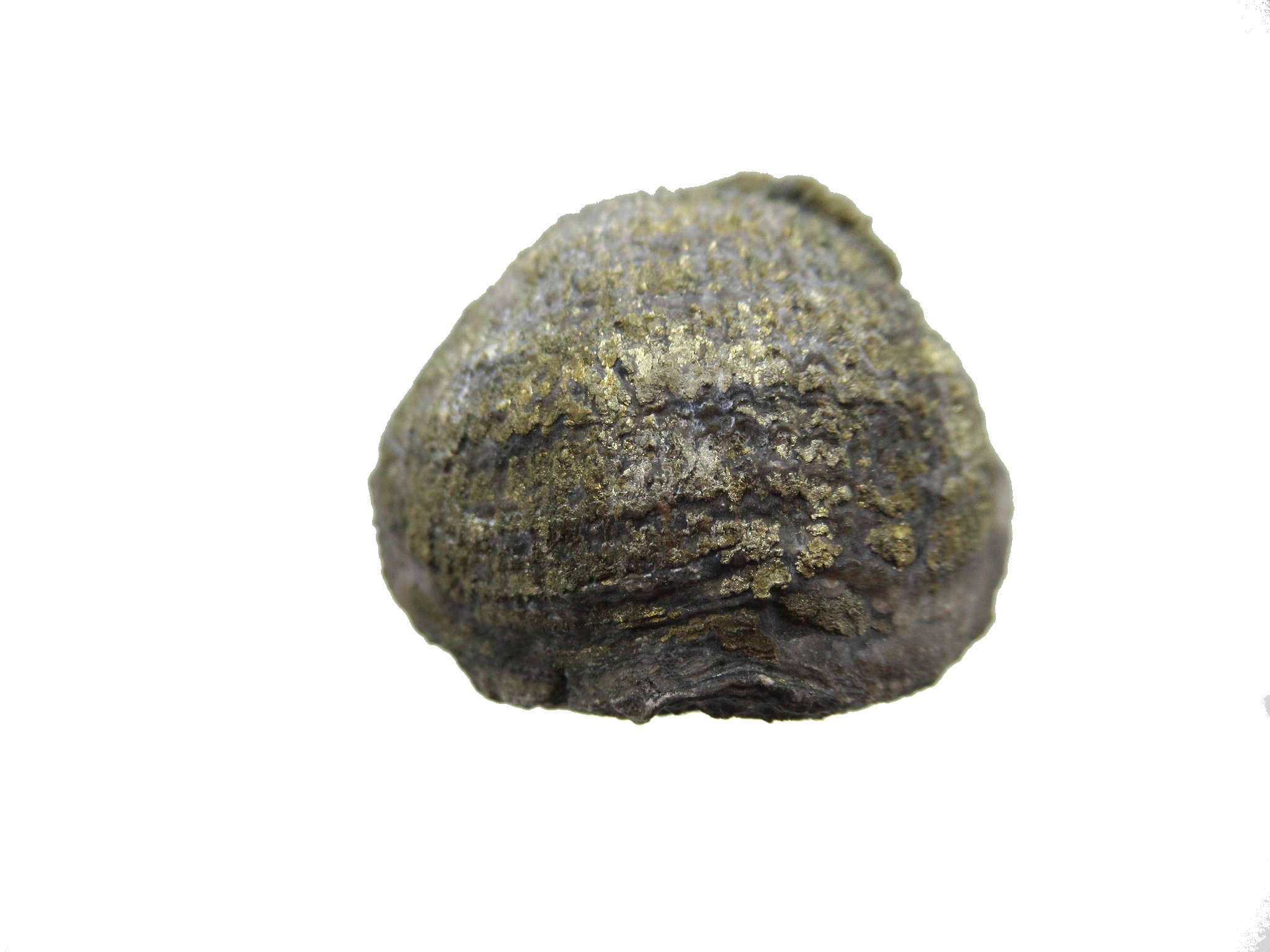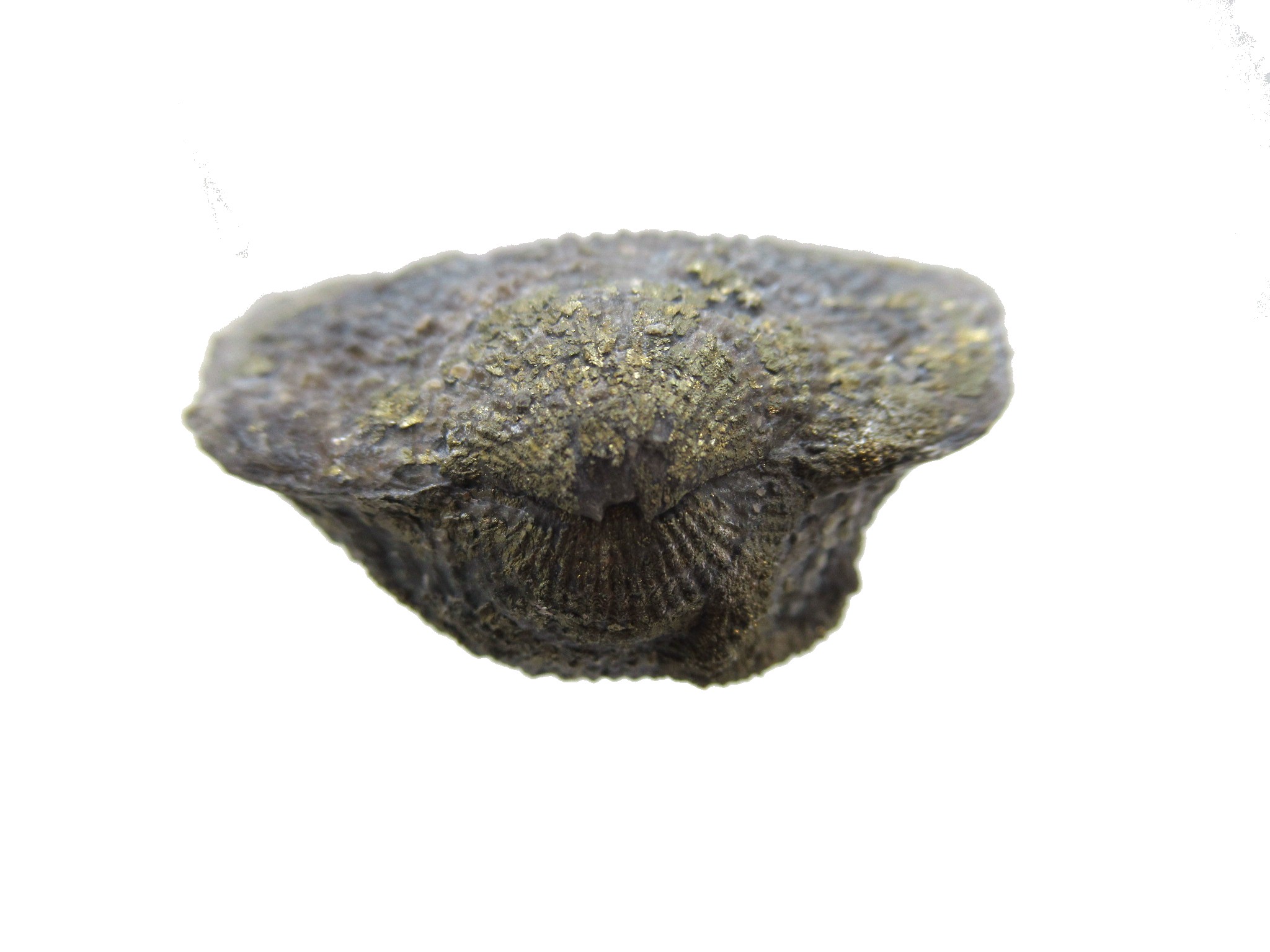Description
- PYRITIZED Stropheodonta sp. Brachiopod
- Devonian Age
- Silica shale formation
- Sylvania, Ohio
- Specimen measures 1.27″ wide
How did these Brachiopods become pyritized? After the brachiopod was buried in the silt that would become limestone, but probably before lithification or being turned into stone, ground water containing iron sulfide (in solution) progressively replaced the original shell material with fool’s gold (pyrite).
Brachiopods, phylum Brachiopoda, are marine animals that have hard “valves” (shells) on the upper and lower surfaces, unlike the left and right arrangement in bivalve molluscs. Brachiopod valves are hinged at the rear end, while the front can be opened for feeding or closed for protection. Two major groups are recognized, articulate and inarticulate. Articulate brachiopods have toothed hinges and simple opening and closing muscles, while inarticulate brachiopods have untoothed hinges and a more complex system of muscles used to keep the two halves aligned. In a typical brachiopod a stalk-like pedicle projects from an opening in one of the valves near the hinges, known as the pedicle valve, keeping the animal anchored to the seabed but clear of silt that would obstruct the opening.
The word “brachiopod” is formed from the Ancient Greek words βραχίων (“arm”) and πούς (“foot”). They are often known as “lamp shells”, since the curved shells of the class Terebratulida look rather like pottery oil-lamps.







